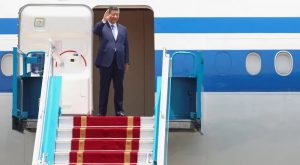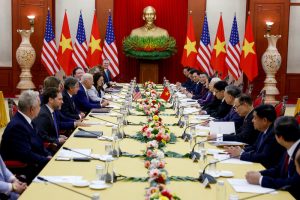(ATF) Shares in Chinese telecommunications giant Xiaomi surged on March 15 after a court blocked the US Department of Defense from restricting American investment in the company.
Hong Kong-listed Xiaomi shares jumped as much as 12%, the company’s biggest intra-day gain in almost a month. The stock was holding at HK$25 per share in mid-morning trading, up 9.9%.
Officials in mid-January added Xiaomi and eight other firms to a list of what it calls Communist Chinese Military Companies (CCMC) that requires American investors to divest their holdings.
Under the terms of the ban, Xiaomi faced the prospect of being delisted from US exchanges and deleted from global benchmark indexes.
Xiaomi in late January filed a complaint seeking to be removed from the list, and on March 12, US District Judge Rudolph Contreras put a temporary halt to the ban on Xiaomi.
“The Department of Defense’s CCMC designation process as to Xiaomi was deeply flawed and failed to adhere to several different … requirements,” Contreras wrote in a 26-page opinion seen by Asia Times Financial.
DEPRIVED OF DUE PROCESS
The judge said the defence department’s decision “arbitrary and capricious” and deprived the company of its due process rights.
The ruling by Contreras has offered hope to dozens of other Chinese companies.
“Xiaomi’s potential win would create a significant precedent for other CCMCs to launch similar lawsuits,” Edison Lee, an equity analyst at Jefferies in Hong Kong, said.
“Xiaomi’s potential victory could challenge the Defense Secretary’s discretion in classifying non-SOEs in China as CCMCs,” he added.
However, Lee said at least 39 of the 43 state-owned companies on the US banned list would be likely to meet the narrow definition of a CCMC.
That would not necessarily prevent them from launching a lawsuit, possibly as a class action, to challenge this narrow definition. “That could put political pressure on the US government as well,” he said.
According to a Hong Kong lawyer, a challenge could succeed as the Xiaomi ruling is the latest in a series of injunctions granted by US federal courts against Trump-era sanctions actions.
“Under the right circumstances, litigation can be an effective strategy for challenging US administrative actions,” the lawyer said.
























